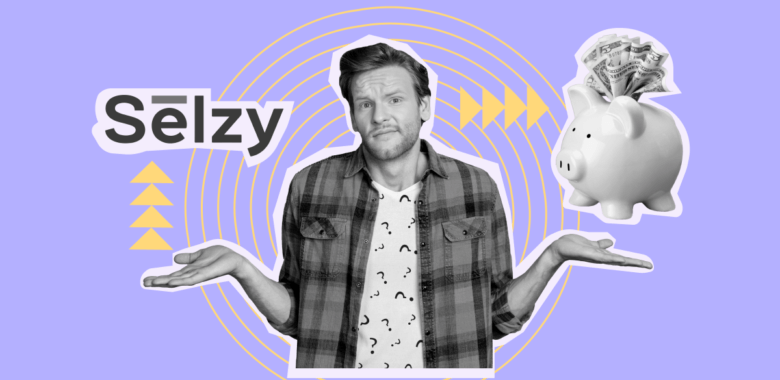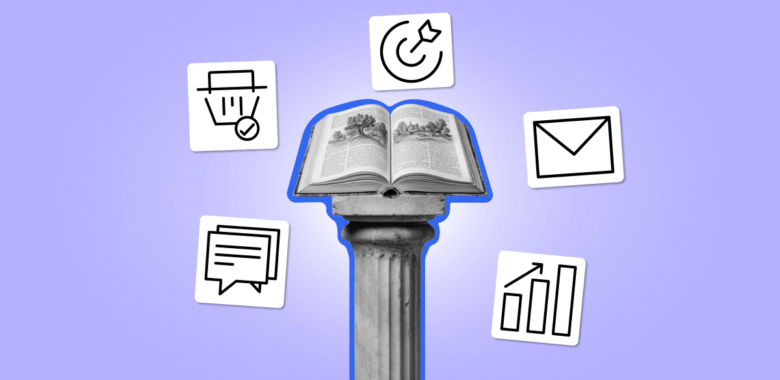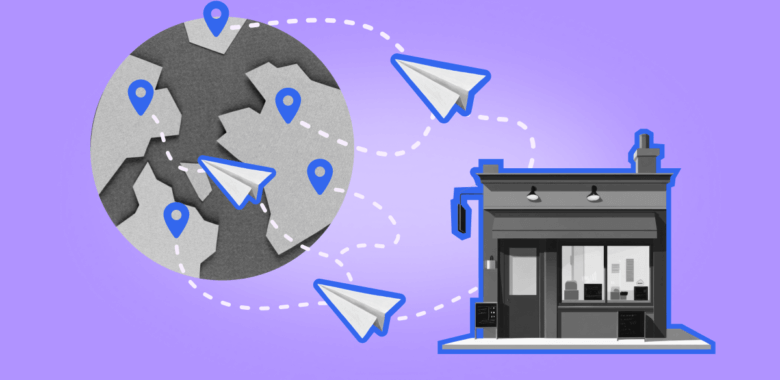What is an affiliate program?
An affiliate program is an agreement between a brand and individuals or other companies. According to the said agreement, companies or individuals who are affiliates promote the brand and get paid a commission for each purchase made via the unique links. We get it, it’s a little convoluted — here’s an example.
Let’s say, John became an affiliate of a brand of healthy snacks. He made a Facebook post where he praised the brand and gave a unique link for purchasing the most delicious no-sugar protein chocolate bars that have ever existed. During the first week, seven people got interested and bought these snacks using John’s link. John got $4 from each purchase, so he earned $28 for doing nothing but writing a post and waiting.
This example is oversimplified but the baseline is the following: you share a link, people use it to buy stuff from the brand, you get paid for each successful sale. But how is it different from referral and partner programs? Let’s find out.
Affiliate vs. Partner vs. Referral marketing
We get where the confusion comes from. Affiliate, partner, and referral programs are all based on the same principle — brands ask people to promote their businesses and provide them with compensation for the said promotion. However, if you take a closer look at these programs, you’ll see how different they are. The devil is in the details — here’s a quick comparison:
| Affiliate 🤝 | Partner 🧑🤝🧑 | Referral 🤭 | |
| Who can take part? | Individual or a company with at least some online presence | Influencers, public figures, other companies | Brand’s customers, regular people with or without online presence |
| What is required from participants? | Bringing any amount of successful sales or traffic | Promoting the brand to a wide audience | Bringing new customers |
| What is the audience of promotional efforts? | A relatively wide outreach, depends on the niche | The partner’s audience, the widest among all these programs | Direct outreach to the people that participants already know |
| What is the compensation paid for? | Purchases or visits via the unique affiliate links | Creating branded content | First purchases made by referred people |
| What does the compensation look like? | Usually a commission from each sale or, sometimes, a flat fee | Flat fee for promotion and sometimes a share of the company | Usually non-monetary, like a discount code, an extended free trial, and so on — but some programs offer a small monetary reward |
| Notable examples | Fiverr, a marketplace for freelancers, offers payments for every first-time buyer | A TikTok sensation Kris Collins partnered with Vessi, promoted the brand several times on her blog, and even released her own collection of shoes as a collaboration | Dropbox offers free storage space for inviting new users |
John studied these differences and decided that he’s not famous enough to become a business partner, and he needs a decent financial compensation, so referral programs are off the table. However, not all affiliate programs are alike. Now, let’s explore affiliate marketing in all its diversity.
Affiliate program types
John has three friends — Chris, Helen, and Ashley. All of them take part in different affiliate programs:
- Chris is an architect and he takes part in the affiliate program of a B2B produce delivery service. He’s not a restaurant owner, he’s not a chef, he doesn’t have enough knowledge to recommend this particular company — but he can keep posting links and earning money off it. This is called unattached affiliate marketing. To take part in it, you don’t have to be an expert in the industry or a loyal customer of the brand.
- Helen is an amateur makeup artist with a decent followership on TikTok. Recently, she became an affiliate for a makeup brand. From time to time, she makes promotional content and posts her affiliate link. Helen knows that this brand is good and she has enough authority to recommend it. However, she gets an intense skin reaction to most of these products — and she never shows herself using them. This is called related affiliate marketing. In this case, you have to know at least a thing or two about the niche but you still don’t have to be in deep relationships with the business you’re promoting.
- Ashley is a professional email marketer with a reputation of a trustworthy expert. She’s been using one bulk email service for over a year and she liked it so much she decided to become an affiliate. Ashley still uses this platform and recommends it on her email marketing webinars. This is called involved affiliate marketing, which means that you have to be an expert in the niche and you have to use the product and share your experience as advertising.
“Hey, just because I want to quit marketing as my main occupation doesn’t mean I’m not an expert anymore”, John thought. The idea of an involved partnership and being an authority seemed way more morally sound than promoting something you don’t use. However, ethics weren’t worrying him as much as money.


















